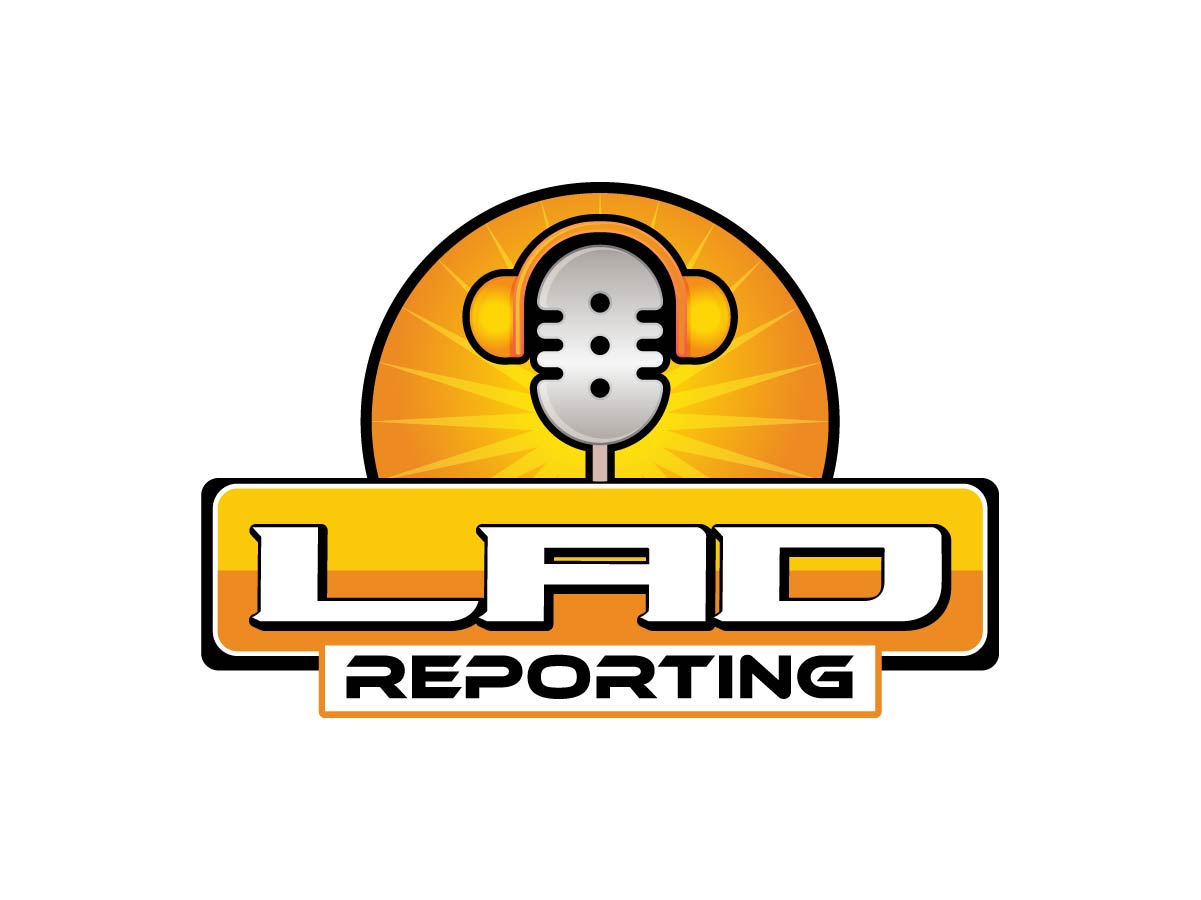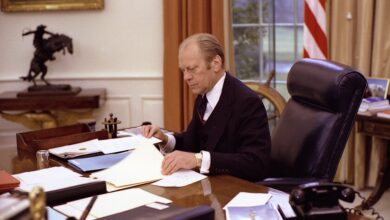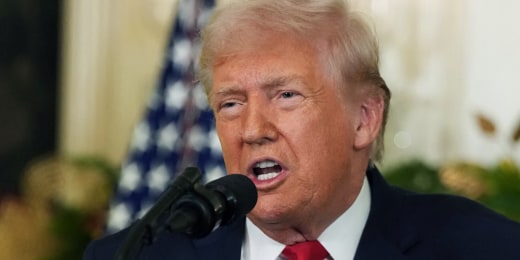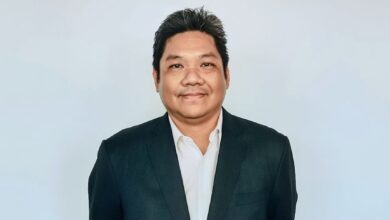$584M on the line as University of California agrees to negotiate with Trump administration

- The University of California system agreed this week to enter negotiations with the Trump administration in an attempt to have $584 million in suspended federal funding restored to the University of California, Los Angeles.
- The funding cut came after the U.S. Department of Justice alleged last week that UCLA broke civil rights law by not doing enough to protect Jewish and Israeli students from harassment. The agency also launched a probe into whether the UC system discriminates against employees by allowing an antisemitic, hostile work environment.
- In announcing the negotiations Wednesday, UC President James Milliken called the UCLA cuts “a death knell for innovative work” and pushed back on the Trump administration’s justification for the revoked funding. “These cuts do nothing to address antisemitism,” he said. “Moreover, the extensive work that UCLA and the entire University of California have taken to combat antisemitism has apparently been ignored.”
A pro-Palestinian camp set up on UCLA’s campus during the spring of 2024 is the source of several of the Justice Department’s accusations against the university.
Citing the need to strike a balance between safety and free expression rights, university officials allowed the encampment to stay for almost a week. After a tumultuous night during which counterprotesters tried to break down the encampment’s barricades, threw fireworks into it, and struck pro-Palestinian protestors with sticks and other objects, they finally requested that the Los Angeles Police Department remove the camp.
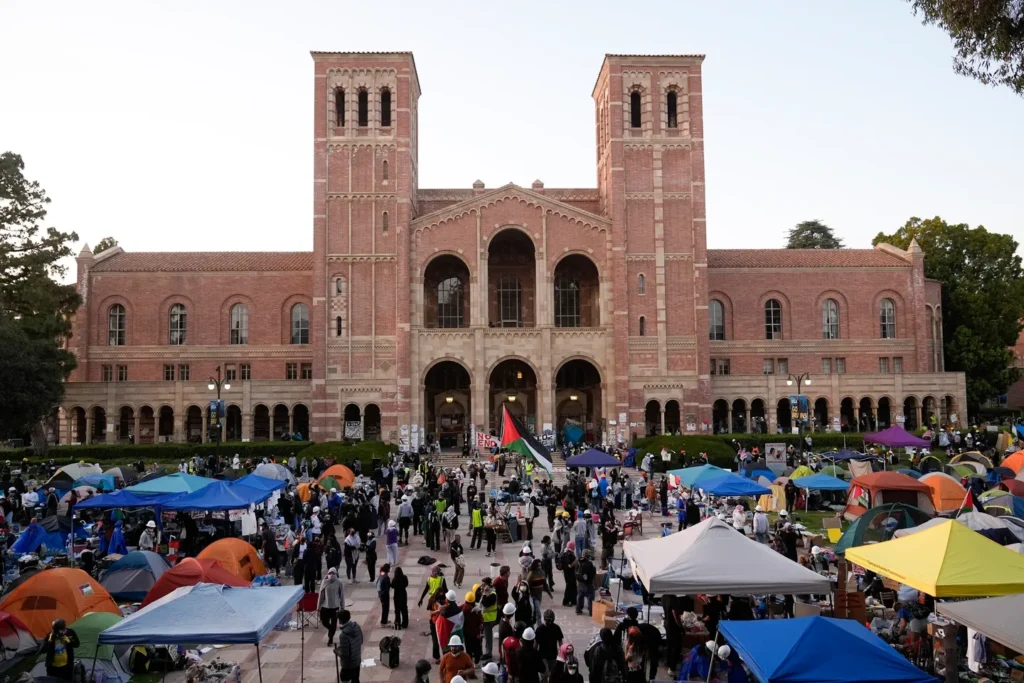
According to The New York Times, the pro-Palestinian demonstrators occasionally retaliated, although there aren’t many examples of them starting altercations during the night’s film. Police didn’t intervene right after when they got there, hours after the violence started.
The Justice Department reports that at least 11 complaints were made to UCLA alleging that encampment protesters discriminated against students on the basis of race, religion, or national origin.
The agency also referenced a UCLA task force investigation that revealed some encampment protestors set up human blockades to prevent people from moving freely about Royce Quad, including students who refused to repudiate Zionism or those who wore the Star of David.
Since then, UCLA has taken a number of actions to strengthen campus protest regulations and fight antisemitism, Milliken said in his statement. In March, the university started a campus campaign to combat antisemitism, which included training and an enhanced complaint procedure, and implemented a system-wide ban on encampments.
In addition, three Jewish students and a Jewish professor sued UCLA last month, claiming the university had violated their civil rights by permitting the encampment protesters to block their entrance to campus. UCLA agreed to pay $6 million to resolve the litigation. According to The Associated Press, more than one-third of the settlement money would be donated to antisemitic advocacy groups.
About three dozen pro-Palestinian students, staff, and others have filed a second complaint against the university, claiming that its authorities violated their right to free speech and failed to defend them against the counterprotesters. The counterprotesters are also included as defendants in the case.
According to their lawsuit, counterprotesters “ruthlessly attacked” the campsite activists, breaking their bones, burning their eyes with chemicals, and hitting them with metal rods and other weapons while UCLA police simply “stood and watched” for hours.
At the request of university officials, the California Highway Patrol and the Los Angeles Police Department dismantled the encampment the following day. The lawsuit claims that police officers “used excessive physical force against and falsely arrested students, faculty, and concerned community members, hurled flashbangs, and shot powerful kinetic impact projectiles at people’s heads and faces.“
As they cleared the campsite, police made nearly 200 arrests. According to the lawsuit, those who were held experienced “invasive searches, false arrests, sexual assaults, and prolonged detentions,” and those who wore headscarves were compelled to take them off, “infringing on their religious practices.“
In addition to damages, the pro-Palestinian litigants suing UCLA want the judge to rule that the encampment’s clearing was unlawful.
READ MORE: LAD REPORTING
